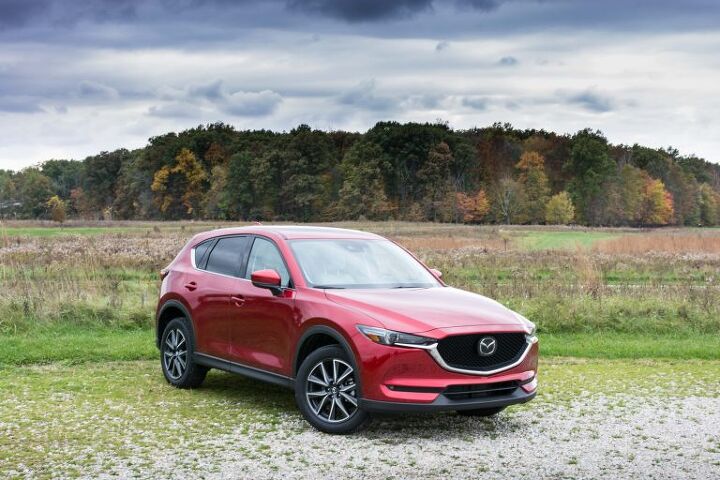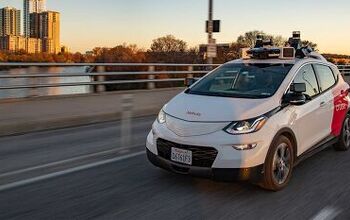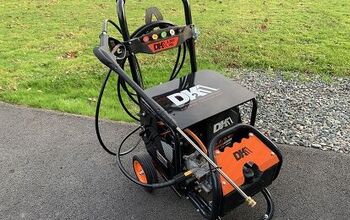Mazda Doesn't Want to Run Low on Crossovers, Plans Accordingly

Like most automakers, utility vehicles make up the bulk of Mazda’s sales, and the ratio is only swinging further in light trucks’ favor. While the new 3 hatch and sedan may be the freshest products on the automaker’s plate, freshly minted CEO Akira Marumoto knows what butters Mazda’s bread.
To keep the adorably midsized automaker in good standing with customers and accountants, the company is taking great pains to ensure the flow of crossovers never stems. Anywhere Mazda builds cars, Marumoto also wants crossover capacity.
Speaking to Automotive News, the CEO, who took the helm in June, said the automaker will revamp its production base, allowing it to build crossovers at any factory, if needed. The effort starts next year at Mazda’s Salamanca, Mexico plant, home to the current- and next-generation 3. One retooled, Mazda can call up crossovers from the car-only plant.
“What we are discussing internally is the production facility or equipment needed to change the mix in an extreme way, from 0 percent to 100 percent in a production line,” Marumoto said, adding that the actual mix would likely be around 40 percent.
Should sedan and hatch sales take a dive, the automaker’s assembly lines wouldn’t throttle back — they’d just add in a more popular product. The same strategy will be applied to plants in Japan and China.
“We’ll be ready to produce passenger cars and crossovers at every plant,” said Marumoto. “Flexibility is very important.” The CEO added that an issue exists with the company’s body shops, as operations are dedicated along model lines. Within five or six years, Marumoto sees that bottleneck disappearing.
Over the first 11 months of 2018, crossover sales rose 18.1 percent at Mazda, echoing a trend seen throughout the industry. Meanwhile, car sales fell 13.8 percent. Year to date, crossovers accounted for 64.9 percent of Mazda’s U.S. sales volume, compared to the 57.4 percent seen at the end of November 2017.
[Image: © 2018 Chris Tonn/TTAC]

More by Steph Willems
Latest Car Reviews
Read moreLatest Product Reviews
Read moreRecent Comments
- Lorenzo They won't be sold just in Beverly Hills - there's a Nieman-Marcus in nearly every big city. When they're finally junked, the transfer case will be first to be salvaged, since it'll be unused.
- Ltcmgm78 Just what we need to do: add more EVs that require a charging station! We own a Volt. We charge at home. We bought the Volt off-lease. We're retired and can do all our daily errands without burning any gasoline. For us this works, but we no longer have a work commute.
- Michael S6 Given the choice between the Hornet R/T and the Alfa, I'd pick an Uber.
- Michael S6 Nissan seems to be doing well at the low end of the market with their small cars and cuv. Competitiveness evaporates as you move up to larger size cars and suvs.
- Cprescott As long as they infest their products with CVT's, there is no reason to buy their products. Nissan's execution of CVT's is lackluster on a good day - not dependable and bad in experience of use. The brand has become like Mitsubishi - will sell to anyone with a pulse to get financed.


































Comments
Join the conversation
I'm happy to hear that Mazda are planning for the future and figuring out how to stay in business without completely abandoning the sedan segments. If it means that they can rejigger and still have sedans in the wings I'm all for it as I'm not ready to go full-on into crossovers (had an Escape for awhile, no significant demerits, but it didn't quite do what I wanted). I currently drive a Mazda6 6MT and am extremely happy with it, especially since I got the upgrade to Android Auto. It's a small thing, but really does make a difference.
Glad to hear you like your car - I'm considering one this coming spring, after two test drives of turbos at different dealers. Seems pretty nice to me after trying out so many cars I've officially lost count. Mazda is the master of making specialized multi-tasking production machinery. I remember reading an SAE article about a decade ago about their three different engine block machining center. They could machine their diesel and gas fours, and the Ford V6 block they bought in for the old CX-9 on one huge machine automatically. Now that's pretty ingenious, and they did it themselves - not hiring a machine tool company.